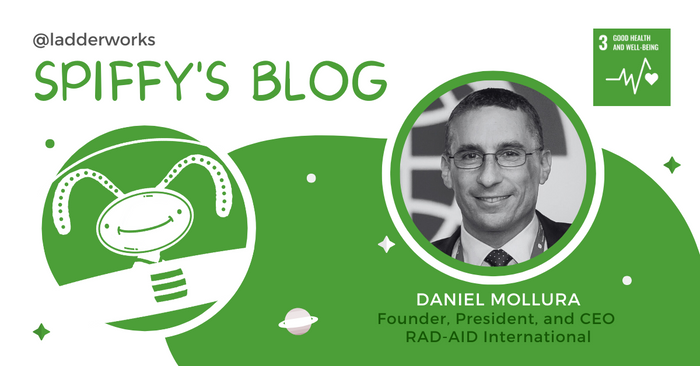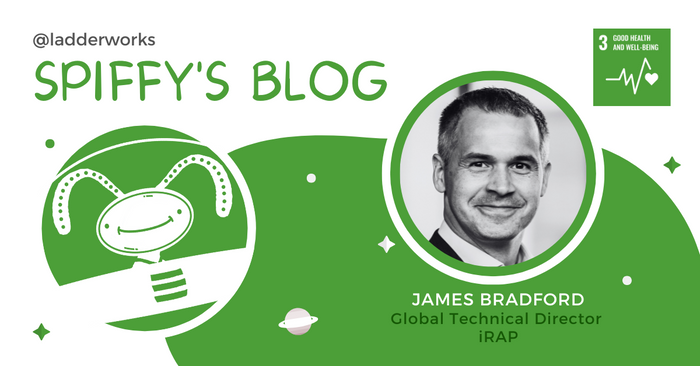Daniel Mollura: Bringing Life-Saving Radiology to Hospitals around the World

Dan: It’s great to be here, Spiffy! Have you ever had an X-ray for a broken bone or a cough, when a doctor took a picture of your arm, leg, or chest? Or gone to the dentist and had a picture taken inside your mouth to check for cavities? These are special medical pictures that help doctors see inside your body so they can help you heal and stay healthy. We call these pictures "radiology" because special "rays" (like X-rays) make the images. Many parts of the world don’t have enough doctors, health workers, or radiology machines to take these pictures or understand what they mean. That’s why our organization is called "RAD-AID"—because we help ("aid") hospitals around the world use radiology ("rad" for short) pictures to help sick or injured people.



